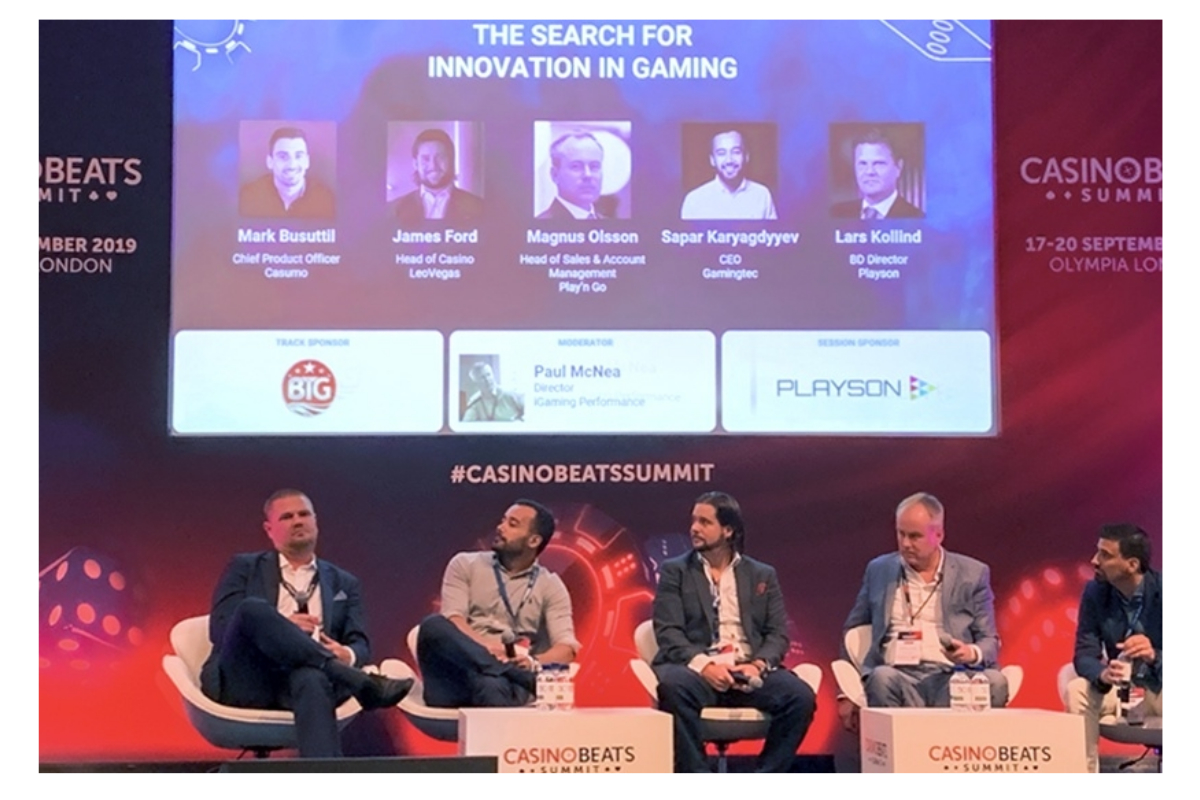Industry News
Future of iGaming industry: What CEO of Gamingtec was talking about at CasinoBeats Summit

Sapar Karyagdyyev, CEO of Gamingtec, took part in a panel discussion “The Search for Innovation in Gaming”. He made a report about the prerequisites for innovation and the changes the iGaming industry faced over the last few years.
The panel discussion took place at CasinoBeats Summit on September 18. Sapar Karyagdyyev discussed the topic together with representatives of Casumo, LeoVegas, Playson, and Play’n Go. The speakers talked about the possibilities for startups to enter the iGaming market.
According to Sapar, there are a few necessary components that should be taken into account such as the ease of entry for disruptors, the appeal of the industry to outsiders, and the regulation.
“I think, iGaming is still a pretty much very closed industry with little information known to the outside world. Increasing the awareness will eventually lead to other e-commerce companies entering the industry in one form or another,” – said the speaker. According to Karyagdyyev’s presentation, the industry is dominated by “big boys” with very few new good companies making headways. The trend for consolidation, pushed by the rising cost of business and regulation, is making this situation even worse. In other words, Karyagdyyev believes that the industry is heading strongly towards some kind of perfect oligopoly where each market is dominated by a handful of incumbent companies.
Sapar Karyagdyyev referred to a problem that most operators offer 95% similar products and services. That is why the game content is pretty similar and operators have to be more creative to engage customers. “Looking for cooperation with game developers, we appreciate companies producing valuable and original content. A month ago, we signed an agreement with Spinomenal, a responsible and fast-growing content provider, and added more than 120 HTML5 games available on desktop and mobile devices to our gaming platform,” – added CEO of Gamingtec.
Among the developments that will impact innovations in iGaming industry, Sapar Karyagdyyev listed faster internet, bigger and better phones. “One notable thing I’ve noticed was a video on Linkedin showing a slot game being played in Tesla. With auto-pilot on and with permissions in place…could be interesting, couldn`t it?” – he finished the speech.
-

 Africa4 days ago
Africa4 days agoNew Governing Board of the Gaming Commission of Ghana Sworn in
-

 Africa6 days ago
Africa6 days agoSA Rugby Renews its Partnership with Betway
-

 Asia6 days ago
Asia6 days agoPolemos Announces Partnership with Guinevere Capital
-

 Asia7 days ago
Asia7 days agoWiseGaming strikes content partnership with Zenith Gaming
-

 Industry News7 days ago
Industry News7 days agoiGB L!VE and Hippodrome Casino join forces for London iGaming Week
-

 Africa5 days ago
Africa5 days agoBetKing Delivers Healthcare Services and Nutrition Support to Underserved Nigerian Communities
-

 Compliance Updates6 days ago
Compliance Updates6 days agoONJN Requests Meta and Google to Remove Illegal Gambling Ads
-

 Asia5 days ago
Asia5 days agoQTech Games strengthens its elite suite with Bigpot Gaming






















